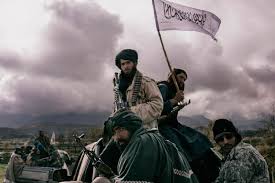Afghanistan’s security and the issue of Taliban regaining power

The security of Afghanistan and the issue of the Taliban regaining power are complex and sensitive issues that have wide-ranging effects on the people of Afghanistan and the region. After the withdrawal of foreign forces in 2021, the Taliban regained power. This development has caused widespread concerns about human rights, especially the rights of women and minorities, and the overall security of the country.
Some of the main security challenges are:
- Human rights: violation of the rights of women, girls and minorities, especially in the field of education and work.
- Economy: economic collapse and humanitarian crisis that has led to widespread poverty and hunger.
- Terrorism: threats from terrorist groups such as ISIS.
- brain drain: mass migration of elites and specialized forces from the country.

The spread of Afghans’ problems under the Taliban regime
*
The Taliban government is facing many and complex challenges that have affected the lives of Afghans. Below are some of these problems:
- violation of human rights
- Women’s and girls’ rights: The Taliban have imposed severe restrictions on women’s rights, including the ban on education for girls above the sixth grade and severe restrictions on women’s work and presence in society.
- Freedom of expression: suppression of media and journalists, limiting freedom of expression and dealing with political opponents.
- economic and human situation
- Poverty and unemployment: The economic collapse and the cutoff of international aid have led to an increase in unemployment and extreme poverty.
- Humanitarian crisis: The lack of food and medical facilities has aggravated the humanitarian crisis. Millions of people need immediate assistance.
- Migration: Hard living conditions and insecurity have caused massive migration of Afghans to neighboring countries and other parts of the world.
- Security and terrorism
- Terrorist threats: The existence of terrorist groups such as ISIS that continuously carry out terrorist attacks and cause insecurity and fear among people.
Internal conflicts: The existence of internal conflicts between different groups and Taliban opponents, which has caused more instability.
- International isolation
- Sanctions and aid cuts: The lack of international recognition of the Taliban and economic sanctions have caused financial and humanitarian aid to Afghanistan to be cut off.
- Diplomatic isolation: lack of effective diplomatic relations with other countries, which has hindered the establishment of trade and international interactions.
- General Services
- Health and treatment: limited access to health and treatment services, especially in rural areas.
- Education: closure of many schools and universities and lack of educational resources.
- Infrastructure
-
- Destroyed infrastructure: Destruction of critical infrastructure such as roads, bridges, and water facilities, which has severely affected people’s daily lives.
- Energy shortage: lack of electricity and fuel that has caused serious problems in people’s daily life and economic activities.
- Lack of resources and corruption
- Lack of resources: lack of food, medicine and other essential resources that have caused serious problems for people’s survival.
- Corruption: The spread of corruption at all levels of the Taliban government, which has aggravated the unfair distribution of resources and services.

These problems indicate the critical situation and serious challenges that the people of Afghanistan are facing. The international community and human rights organizations are still trying to respond to this situation and support the rights and needs of the Afghan people.